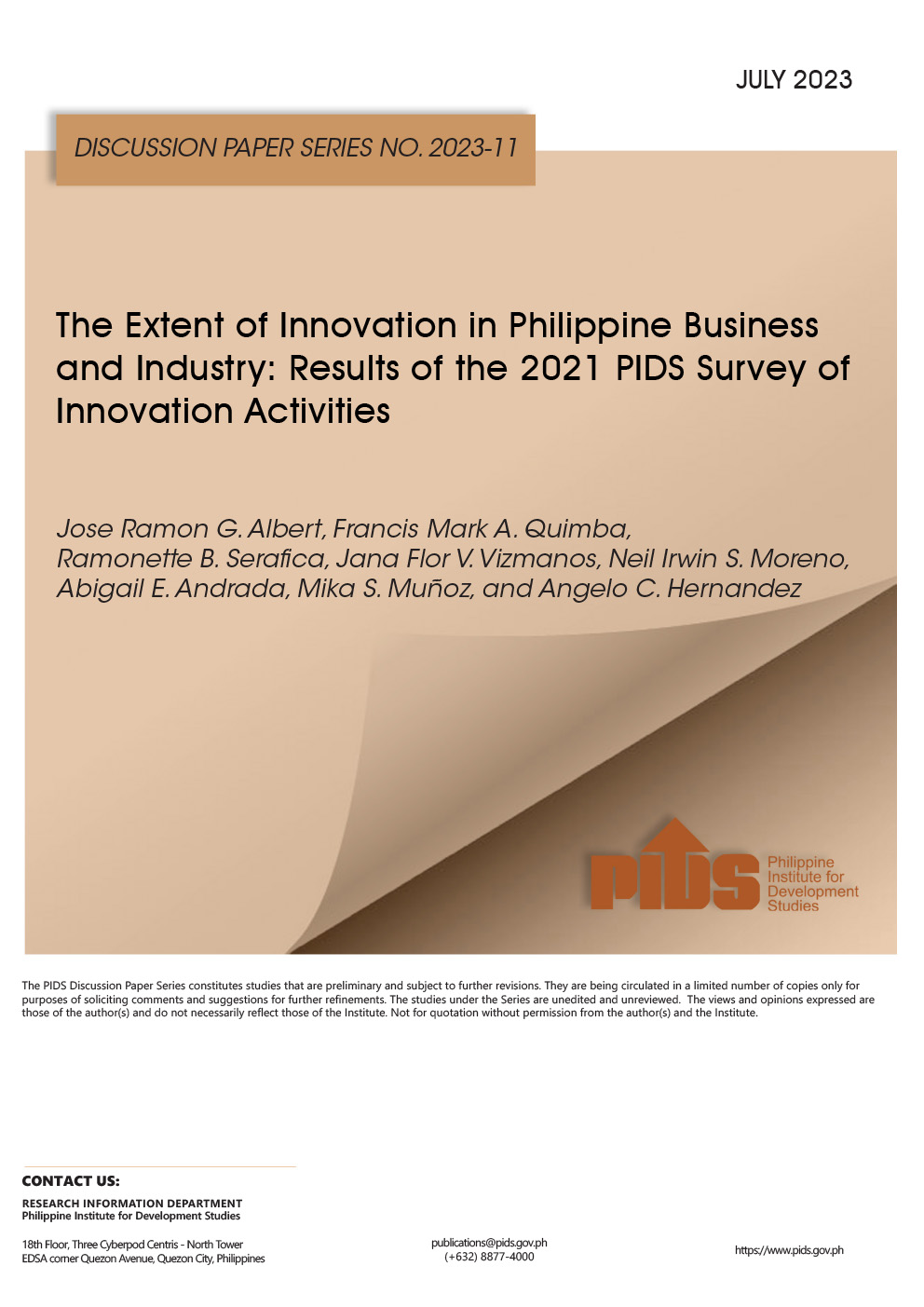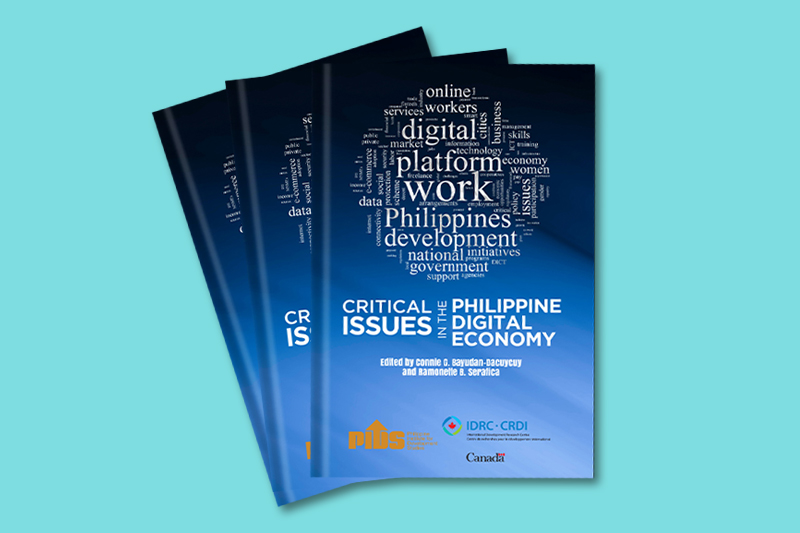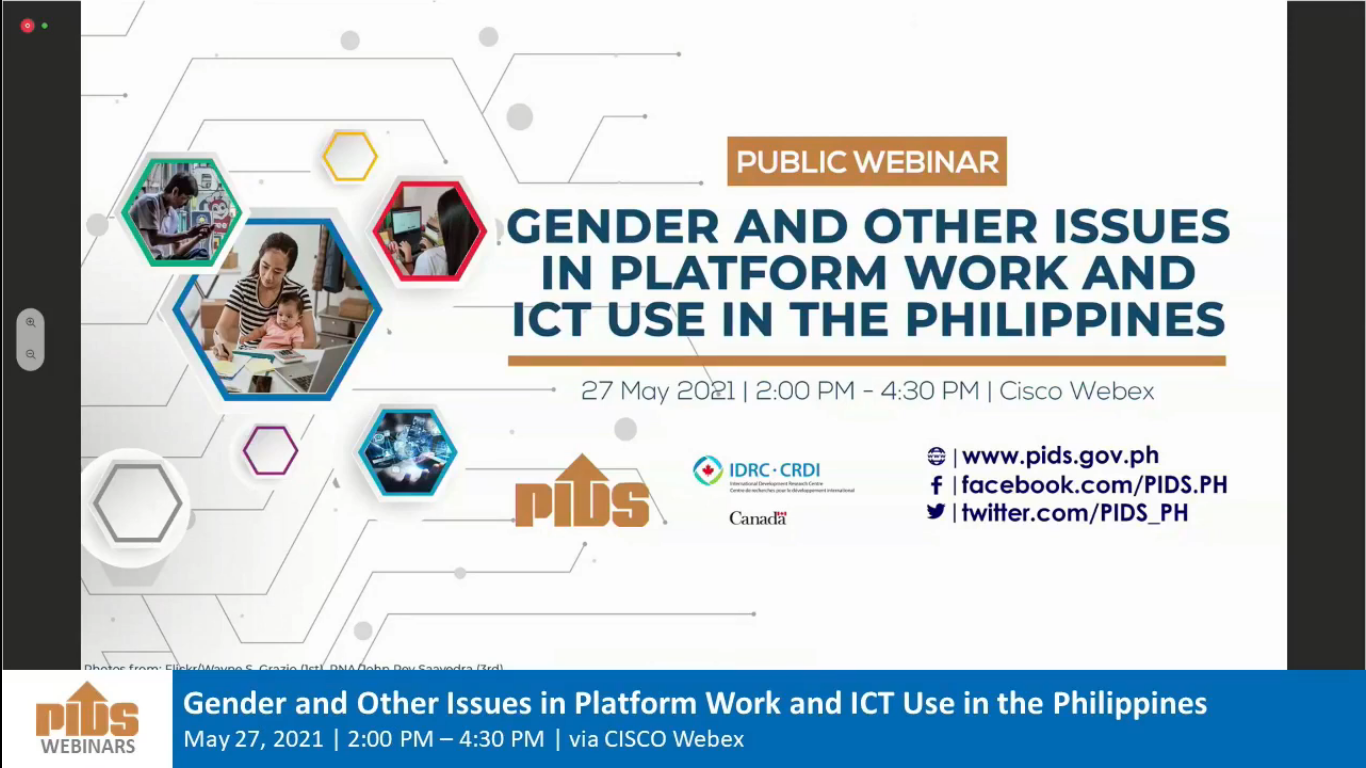
A review of the country’s regulations on the platform economy is necessary to reap its benefits.
Marie Sherylyn Aquia, chief of the Multilateral Relations Division of the Bureau of International Trade Relations of the Department of Trade and Industry, emphasized this during a recent webinar organized by state think tank Philippine Institute for Development Studies (PIDS).
Aquia, a discussant at the webinar, said “there is a need to get rid of bad regulations that could stifle competition and inhibit innovation” as the digital economy continues to flourish in the country.
She noted that governments should assume “a more active role to ensure that policies keep pace with technological developments”.
Through an enabling policy environment, Aquia said the government could drive the digital economy and make it an important contributor to the country's growth and development.
According to her, many of the country’s current policies or laws on competition, investment, consumer protection, and intellectual property rights were developed “when platforms were not yet a pervasive business model”.
She further explained that most of these laws or regulations were directed toward the traditional nonplatform-linear-model kind of business, thus, the need to revisit and update them.
Aquia also said regulations are key to attaining a robust digital economy.
“Regulations are important because they address certain objectives. At their best, they can capture value for many stakeholders, allowing us to benefit from the digital economy. At their worse, only a few stakeholders can benefit,” she explained.
Moreover, Aquia emphasized the importance of cooperation between the public and private sectors as technologies advance more rapidly and new business models are emerging.
“This is important because the private sector is always ahead, and the government is always behind, so they really need to work together,” she noted.
She also pointed out that data privacy is essential in building trust among government, private sector, and consumers, thus promoting business growth, innovation, and digital confidence in a thriving digital economy.
Aquia also mentioned that international disciplines/rules and structural reform efforts play a crucial role in ensuring that domestic policies are responsive to the needs of stakeholders.
“The global nature of the internet also calls for global approaches, whether it's in rulemaking, in cooperation, or in mutual recognition,” she concluded. ###
You may watch the webinar at https://www.facebook.com/PIDS.PH/videos/448971246383461. For more videos of PIDS events, go to https://www.pids.gov.ph/videos.
Marie Sherylyn Aquia, chief of the Multilateral Relations Division of the Bureau of International Trade Relations of the Department of Trade and Industry, emphasized this during a recent webinar organized by state think tank Philippine Institute for Development Studies (PIDS).
Aquia, a discussant at the webinar, said “there is a need to get rid of bad regulations that could stifle competition and inhibit innovation” as the digital economy continues to flourish in the country.
She noted that governments should assume “a more active role to ensure that policies keep pace with technological developments”.
Through an enabling policy environment, Aquia said the government could drive the digital economy and make it an important contributor to the country's growth and development.
According to her, many of the country’s current policies or laws on competition, investment, consumer protection, and intellectual property rights were developed “when platforms were not yet a pervasive business model”.
She further explained that most of these laws or regulations were directed toward the traditional nonplatform-linear-model kind of business, thus, the need to revisit and update them.
Aquia also said regulations are key to attaining a robust digital economy.
“Regulations are important because they address certain objectives. At their best, they can capture value for many stakeholders, allowing us to benefit from the digital economy. At their worse, only a few stakeholders can benefit,” she explained.
Moreover, Aquia emphasized the importance of cooperation between the public and private sectors as technologies advance more rapidly and new business models are emerging.
“This is important because the private sector is always ahead, and the government is always behind, so they really need to work together,” she noted.
She also pointed out that data privacy is essential in building trust among government, private sector, and consumers, thus promoting business growth, innovation, and digital confidence in a thriving digital economy.
Aquia also mentioned that international disciplines/rules and structural reform efforts play a crucial role in ensuring that domestic policies are responsive to the needs of stakeholders.
“The global nature of the internet also calls for global approaches, whether it's in rulemaking, in cooperation, or in mutual recognition,” she concluded. ###
You may watch the webinar at https://www.facebook.com/PIDS.PH/videos/448971246383461. For more videos of PIDS events, go to https://www.pids.gov.ph/videos.












